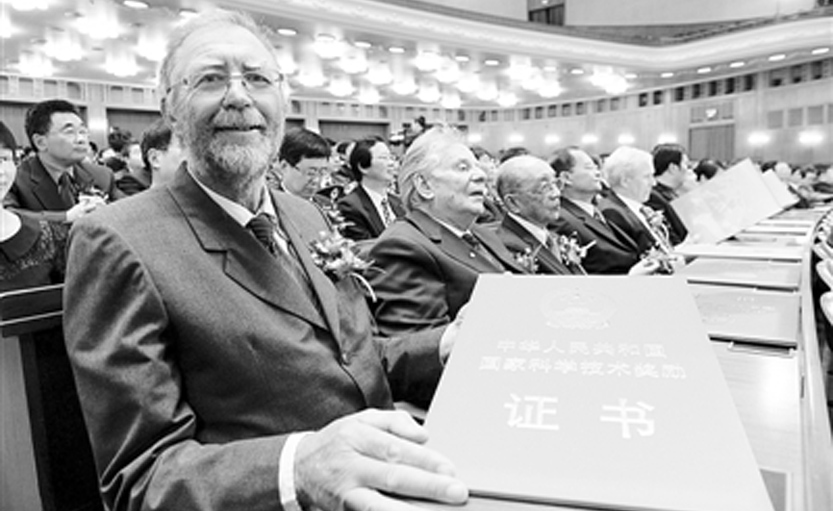Foreign scholars thriving in open China

A foreign expert shows his Certificate of the International Scientific and Technological Cooperation Award of the People's Republic of China. He gained it for his contribution to China after long-term cooperation with the country.
Chinese President Xi Jinping has called for the recruitment of overseas experts and urged more proactive policies for introducing innovative talents. He made the remarks at the Shanghai delegation discussion during the annual sessions of China’s top legislature and political advisory body held in early March.
According to the latest data released by the State Administration of Foreign Experts Affairs, thousands of eligible institutions passed the annual inspection of hiring foreign experts in the fields of culture and education in 2015.
Foreign scholars recruited by these institutions are leading fulfilling academic lives in China.
Md. Muhibbur Rahman, a research fellow from the Institute of International Studies under Bangladesh’s Ministry of Foreign Affairs, started a three-month academic visit at the Institute of International Studies at Fudan University in January 2015. His research subject is the Chinese government’s new Silk Road strategy and its impact on the China-South Asia relationship.
“The research I have done in China can not only help the Bangladeshi government deepen its understanding of China’s strategic concepts, but is also of positive significance to promoting China-Bangladesh and China-South Asia cooperation,” said Rahman.
Indian scholar Binod Singh, a lecturer at the Center for Southeast Asian Studies at Peking University, has also shown interest in China’s “One Belt, One Road” initiative, or Silk Road Economic Belt and 21st Century Maritime Silk Road. He has corrected some scholars’ misunderstanding that India is “boycotting” China’s “One Belt, One Road” initiative. Some Indian commentators at English-language media outlets have voiced critical opinions, but they do not represent the stance of the Indian government or India, Singh said.
In the Chinese academic environment, Rahman was first impressed by its internationalized conditions for scientific research, sufficient funds and high efficiency.
“Having pursued studies in the US and Norway, I think the current environment for scientific research in China has lived up to international standards,” he said.
Rahman’s second impression is that China has become increasingly open and inclusive to foreign scholars in recent years. “Although I am a newcomer, I can still feel the openness and warmth at Fudan University. I am deeply aware that China is strongly encouraging young scholars to engage in scientific research and will finance them or support them in other necessary ways,” he said.
Zhang Junrong is a reporter at the Chinese Social Sciences Today.
